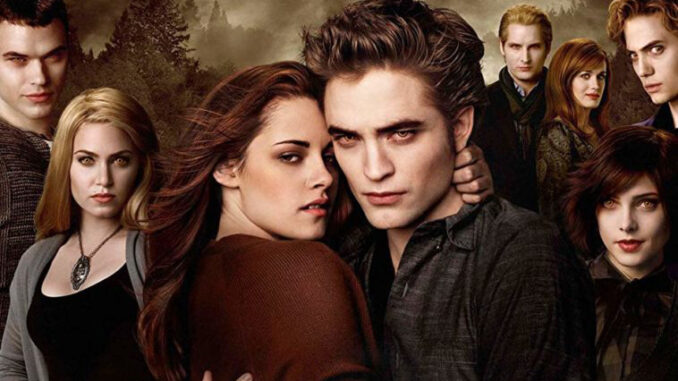
The digital age, with its insatiable appetite for content and its profound capacity for remembrance, often feels like a perpetual loop. Yesterday’s cultural touchstones become today’s nostalgic comfort, and tomorrow’s reboot. So, when the whispers solidified into confirmation – a Twilight reboot is indeed in the works – it wasn’t just a headline; it was a resounding echo in the digital forest, confirming a few fundamental truths about our present cultural landscape.
The first, and perhaps most obvious, truth confirmed by the Twilight reboot is Hollywood’s unwavering faith in the alchemy of established intellectual property. In an era of streaming wars and fractured attention, the known quantity is a gold standard. Why risk millions on an untested narrative when you can re-mine the rich veins of a franchise that once commanded a global frenzy? Twilight, despite its often-mocked dialogue and polarizing love triangles, was a bona fide phenomenon. Its books sold over 160 million copies worldwide, and its five films grossed over $3.3 billion. This isn’t just a story; it’s a blueprint for profit. The reboot, rumored to be an animated series initially before potentially moving to live-action, isn’t merely an act of creative resurrection; it’s a strategic economic maneuver, a safe harbor in a turbulent industry. We know that in the current climate, nostalgia isn’t just a feeling; it’s a commodity, packaged and sold as a warm, familiar blanket for a generation navigating an increasingly uncertain world.
Secondly, the Twilight reboot underscores the relentless generational cycle of pop culture. For many Millennials, Twilight was formative – a potent cocktail of gothic romance, forbidden desire, and high school angst that defined a significant chunk of their adolescence. Now, as those Millennials move further into adulthood and Gen Z comes of age, the cultural baton is being passed, or perhaps, revisited. The question isn’t just “Will a new generation embrace it?” but “How will the old generation re-engage with it?” The reboot allows for a communal revisiting of a shared past, offering both comfort and the intriguing possibility of re-interpretation. Will the new series lean into the camp, or will it strive for a more serious tone, perhaps correcting perceived narrative flaws of the original films? We know that every generation seeks its own myths and heroes, and sometimes, those are simply polished versions of their predecessors. The reboot offers a chance to see Twilight through a new lens, potentially stripping away some of the early 2010s aesthetic to reveal the pulpy, beating heart of its supernatural romance.
What specific details do we know so far that illustrate these points? The key information confirms that the reboot is in early development at Lionsgate Television, with Stephanie Meyer, the author of the original books, reportedly involved. This involvement is crucial. It speaks to a desire for authenticity, a direct link to the narrative’s source code, which can appease purists. Meyer’s presence suggests a commitment to the core themes and characters, perhaps even an opportunity to explore elements from the books that the films omitted or streamlined. The initial push for an animated format is also illustrative. Animation offers a unique creative freedom, allowing for a fresh visual style that sidesteps direct comparisons to the beloved (or reviled) live-action performances of Robert Pattinson, Kristen Stewart, and Taylor Lautner. It provides a blank canvas, a chance to define a new visual identity for a story whose imagery is already deeply ingrained in the collective consciousness. This choice demonstrates an understanding that while the story is revered, the presentation can evolve. It’s a clever way to honor the past while carving out a new path.
Finally, the Twilight reboot confirms our enduring fascination with epic romance and escapism, particularly when laced with the fantastical. For all its detractors, Twilight tapped into a potent vein of yearning – for a love so consuming it bordered on the supernatural, for a world where ordinary high school drama could collide with ancient vampiric feuds and werewolf pacts. In an increasingly complex and often grim reality, stories that offer a complete immersion into a fantastical, high-stakes emotional landscape will always find an audience. The reboot isn’t just about Edward and Bella; it’s about the universal desire to believe in something bigger, more dramatic, and infinitely more romantic than everyday life. We know that the human heart, regardless of the era, still beats for passion, for longing, and for the thrilling danger of forbidden love.
In essence, the confirmation of a Twilight reboot is more than just entertainment news. It’s a cultural Rosetta Stone, translating our collective impulses: our reliance on the familiar, our cyclical relationship with generational narratives, our strategic leveraging of established IP, and our unwavering hunger for escapist fantasy. As the whispers turn into concrete plans, the Twilight saga prepares to rise again, not just as a new series, but as a mirror reflecting the landscape of our current desires and the ever-spinning wheel of pop culture.
